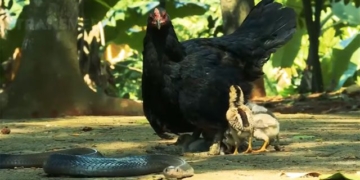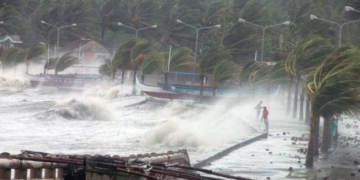A fact that not everyone knows about this New Year’s Eve.
For Vietnamese people in particular and for those in East Asian cultures in general, the Lunar New Year (Tết Nguyên Đán) is always the most important and meaningful time of the year. Throughout the year, whether working or studying, one question that everyone often asks themselves is “When will Tết arrive?”
The most sacred moment is the New Year’s Eve – when the earth and sky seem to harmonize, welcoming the transition between the old year and the new year. Since ancient times, Vietnamese people have placed great importance on the 30th day of the last lunar month, as well as the moment of New Year’s Eve.
30th of Tết as a significant milestone for many families
For every family member, the 30th of Tết is like a “milestone” in the year. No matter where one is or what one is doing, by the latest on the 30th of Tết, everyone must return home to complete their tasks and gather with family for the last meal of the year. Following that, preparations begin for welcoming the New Year’s Eve.
According to folk beliefs, Vietnamese people believe that each year, different deities oversee the earthly realm. Every 30th day of the last lunar month, the old deities hand over their responsibilities to new ones and return to the heavenly realm.
Therefore, during this celebration, families prepare offerings on the altar in their homes, as well as outdoor offerings to the heavens and earth. At midnight on the 30th of the last lunar month, family members gather to worship, “bid farewell to the old and welcome the new,” seeking a peaceful new year.

For every family member, the 30th of Tết is like a significant milestone in the year. (Illustrative image).
Not every year has a 30th of Tết
However, the reality is that not every year has a 30th of Tết. This is because it depends on the calculations of the lunar calendar; sometimes, in a shorter month, there may not be a 30th day, ending instead on the 28th or 29th. If it coincides with the last lunar month, this phenomenon occurs. This happened in 2021 when we had to celebrate New Year’s Eve on the 29th of Tết.
Astronomically, the current lunar calendar is arranged according to the astronomical movements of the Earth, the moon, and the sun. One of the most important principles is to ensure that the Earth, moon, and sun align on a straight line, and this is the moment when observers on Earth cannot see the moon, with the lunar eclipse occurring on the first day of each month.
However, the moon’s phase from full to new lasts an average of 29.53 days. Each month’s number of days must be even, which leads to the occurrence of surplus and deficit months in the lunar calendar.
While this follows long-established rules for calculating days, the emotional aspect may not be entirely fulfilled. The 30th of Tết remains a milestone of special significance, and having to celebrate New Year’s Eve on the 29th, immediately followed by the first day of the new month, can leave people feeling a sense of loss and unrest.
A fact that not everyone knows about this year’s special New Year’s Eve
This year, we are joyfully celebrating a complete New Year’s Eve on the night of the 30th. However, there is a fact that many may not know: starting from 2024 onwards, we will only celebrate New Year’s Eve on the 29th of Tết, continuing until 2033.
This means we will have to wait another 9 years to experience the feeling of having a 30th of Tết and fully enjoy the emotions of welcoming the New Year.
This year’s New Year’s Eve will fall on February 9, 2024. In that sacred and special moment, alongside bidding farewell to the old year and welcoming the new, embrace your family tightly and share many wishes for yourself and everyone for a peaceful, healthy, and prosperous new year. A common phrase among Vietnamese during the New Year is: “May the new year bring new blessings and prosperity, with good fortune and safety.”





















































